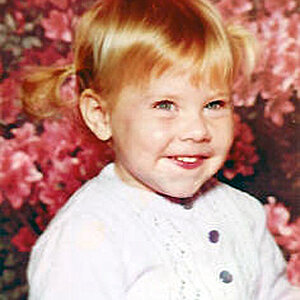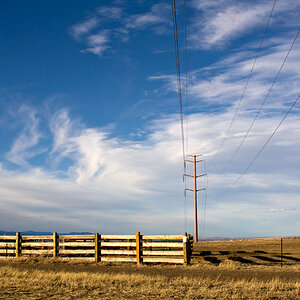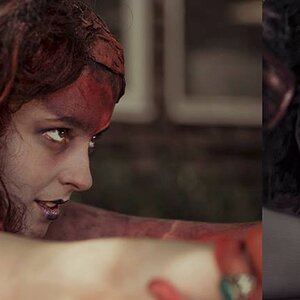sashbar
Been spending a lot of time on here!
- Joined
- Dec 13, 2012
- Messages
- 3,044
- Reaction score
- 1,183
- Location
- Behind the Irony Curtain
- Can others edit my Photos
- Photos NOT OK to edit
I decided to start a new thread with this quote from Derrel, because the article he mentioned is worth reading and discussing, methinks.
The most interesting part in this article to me personally is the question in the headline, which in fact was not answered: why everything is getting re-invented?
He wrote about the new generation: "It's no longer enough to get something in focus, well exposed and color correct. It's no longer good enough to fix all the "flaws" in Photoshop. What the important audience wants now is the narrative, the story, the "why" and not the "how." The love,not the schematic".
But Kirk Tuck does not say why the "why" became more important than "how". Some would say, because these days our cameras know "how", so we may concentrate on "why". I think there is more than that.
Funny enough only yesterday I wrote about an image here in TPF and mentioned exactly that: I did not care how it was shot, if it was a snapshot or a masterpiece, because more important to me was the story it gave me. And that is exactly how I feel about most images these days. Technical perfection does not wow me anymore. Why? Because the world is already over-saturated with technically perfect images. It is everywhere, every commercial, every poster you see, every postcard that falls through you letter hole is technically perfect. Every landscape that is worth a quick look was shot from dawn to dusk. Perfection is devalued. The beauty is devalued, we need to look further than a beautiful skin tone to appreciate the beauty. Not long ago a perfect photo would live a generation. These days it is disposable within a day. Only masterpieces that go far beyond beauty survive.
A technically perfect image of a perfectly beautiful woman is cheap as chips - they are everywhere you look: form travel brochures to dental floss commercials. Even porn is becoming increasingly glossy. So there is nothing more mundane, dull and boring to me, than a photo of a cat or a beautiful woman. (Probably a photo of a beautiful woman with a cat would beat that). Because every cat and every beautiful woman on Earth was already shot to perfection 147 times at the very least. If we extract all silver photobullets from cats and beautiful women, we can build a new shining Berlin Wall that will stretch to Jupiter. And back to Earth. Twice.
I am not able to appreciate technical Excellency anymore, even though I still remember my darkroom torture when a teenager and my crap photos from my Olympus film P&S of the late 80-s. I became more democratic. These days we pick up a free glossy magazine in a supermarket and expect perfectly constructed, exposed ( in more than one sense) and pp-ed images on every page, just as we expect our microwave to turn on when we press the button and our car engine start when we turn the key. Or press the button, if you have a modern car.
That is exactly why technical perfection does not wow the new generation. That is why I am not buying a Full Frame camera – I have a feeling that I would jump on a train that goes to the theatre with no spectators. And no show.
I would say that “perfection” should be replaced by the more important or decisive definition these days: an aesthetic threshold - an image quality that is good enough for people to appreciate photography. iPhone 5 has crossed this threshold lately and that is why big camera manufacturers are so worried.
Again, quote: "So, what does this mean for the camera industry? It means that incremental improvements in quality no longer mean **** to a huge and restless younger market. They don't care if the image is 99% perfect if the content is exhilarating and captivating. No one cared if the Hobbit was available at 48 fps as long as the story was strong in 24 fps. No one cares if a landscape is perfect if there's a reason for the image of a landscape to exist. No one cares if a model is perfect if the model is beguiling".
The big question is - is it all good or bad for photography?
I believe it is great. It liberates image making from technical shackles and exposes creatively limited and artistically hopeless photographers who major on technical prowess. It exposes them the way a good music exposes a drummer who learned how to hit his drum 20 times per second with precision, but is unable to follow the tune. It exposes gear geeks, camera snobs, bokeh experts and those jolly fellows who's main priority in photography is to get laid. (I would not be so sure about the last category, though. No, these guys will survive, god bless them)
Anyway, the new generation may be obnoxious about the true "quality" of an image, do not give a **** about bokeh (I applaud here), may never ever heard about Gestalt principles and have no idea who this Fibonacci bloke is, BUT there is one important thing the new generation gets absolutely right: creativeness and content are more important to them than form and technique. That means that a lot of creative talents will get nowhere because of their technical ineptitude, but there is a chance that new ideas will be brought into photography and we all will be rescued from the unenviable fate of beating a dead horse with a more and more sophisticated photo stick.
What are your thoughts, guys? And read the article, it gives you a lot of food for thought.
... maybe you two can take heart6 from this interesting column Kirk Tuck wrote not too long ago, after having attended the PDN photo show in NYC recently.
The Graying Of Traditional Photography And Why Everything Is Getting Re-Invented In A Form We Don't Understand By Kirk Tuck | DIYPhotography.net
The most interesting part in this article to me personally is the question in the headline, which in fact was not answered: why everything is getting re-invented?
He wrote about the new generation: "It's no longer enough to get something in focus, well exposed and color correct. It's no longer good enough to fix all the "flaws" in Photoshop. What the important audience wants now is the narrative, the story, the "why" and not the "how." The love,not the schematic".
But Kirk Tuck does not say why the "why" became more important than "how". Some would say, because these days our cameras know "how", so we may concentrate on "why". I think there is more than that.
Funny enough only yesterday I wrote about an image here in TPF and mentioned exactly that: I did not care how it was shot, if it was a snapshot or a masterpiece, because more important to me was the story it gave me. And that is exactly how I feel about most images these days. Technical perfection does not wow me anymore. Why? Because the world is already over-saturated with technically perfect images. It is everywhere, every commercial, every poster you see, every postcard that falls through you letter hole is technically perfect. Every landscape that is worth a quick look was shot from dawn to dusk. Perfection is devalued. The beauty is devalued, we need to look further than a beautiful skin tone to appreciate the beauty. Not long ago a perfect photo would live a generation. These days it is disposable within a day. Only masterpieces that go far beyond beauty survive.
A technically perfect image of a perfectly beautiful woman is cheap as chips - they are everywhere you look: form travel brochures to dental floss commercials. Even porn is becoming increasingly glossy. So there is nothing more mundane, dull and boring to me, than a photo of a cat or a beautiful woman. (Probably a photo of a beautiful woman with a cat would beat that). Because every cat and every beautiful woman on Earth was already shot to perfection 147 times at the very least. If we extract all silver photobullets from cats and beautiful women, we can build a new shining Berlin Wall that will stretch to Jupiter. And back to Earth. Twice.
I am not able to appreciate technical Excellency anymore, even though I still remember my darkroom torture when a teenager and my crap photos from my Olympus film P&S of the late 80-s. I became more democratic. These days we pick up a free glossy magazine in a supermarket and expect perfectly constructed, exposed ( in more than one sense) and pp-ed images on every page, just as we expect our microwave to turn on when we press the button and our car engine start when we turn the key. Or press the button, if you have a modern car.
That is exactly why technical perfection does not wow the new generation. That is why I am not buying a Full Frame camera – I have a feeling that I would jump on a train that goes to the theatre with no spectators. And no show.
I would say that “perfection” should be replaced by the more important or decisive definition these days: an aesthetic threshold - an image quality that is good enough for people to appreciate photography. iPhone 5 has crossed this threshold lately and that is why big camera manufacturers are so worried.
Again, quote: "So, what does this mean for the camera industry? It means that incremental improvements in quality no longer mean **** to a huge and restless younger market. They don't care if the image is 99% perfect if the content is exhilarating and captivating. No one cared if the Hobbit was available at 48 fps as long as the story was strong in 24 fps. No one cares if a landscape is perfect if there's a reason for the image of a landscape to exist. No one cares if a model is perfect if the model is beguiling".
The big question is - is it all good or bad for photography?
I believe it is great. It liberates image making from technical shackles and exposes creatively limited and artistically hopeless photographers who major on technical prowess. It exposes them the way a good music exposes a drummer who learned how to hit his drum 20 times per second with precision, but is unable to follow the tune. It exposes gear geeks, camera snobs, bokeh experts and those jolly fellows who's main priority in photography is to get laid. (I would not be so sure about the last category, though. No, these guys will survive, god bless them)
Anyway, the new generation may be obnoxious about the true "quality" of an image, do not give a **** about bokeh (I applaud here), may never ever heard about Gestalt principles and have no idea who this Fibonacci bloke is, BUT there is one important thing the new generation gets absolutely right: creativeness and content are more important to them than form and technique. That means that a lot of creative talents will get nowhere because of their technical ineptitude, but there is a chance that new ideas will be brought into photography and we all will be rescued from the unenviable fate of beating a dead horse with a more and more sophisticated photo stick.
What are your thoughts, guys? And read the article, it gives you a lot of food for thought.
Last edited:


 He is not talking about the technical stuff as such. He is saying that because the technical suff is a done deal, people are not interested in a perfect technical quality of an image anymore. They do not care if it is "tack sharp" or perfectly exposed - exactly because it is a done deal and can be done easily these days. Everyone can do it, and because of that it is everywhere and it has lost its value. So the content, the creative idea, the narrative, the story is becoming a king.
He is not talking about the technical stuff as such. He is saying that because the technical suff is a done deal, people are not interested in a perfect technical quality of an image anymore. They do not care if it is "tack sharp" or perfectly exposed - exactly because it is a done deal and can be done easily these days. Everyone can do it, and because of that it is everywhere and it has lost its value. So the content, the creative idea, the narrative, the story is becoming a king.


![[No title]](/data/xfmg/thumbnail/35/35597-714b74cc48992e5353856abfe325df68.jpg?1619737065)



![[No title]](/data/xfmg/thumbnail/42/42453-e95056d39ba6f0ce0e7a7fff81041853.jpg?1619740190)



